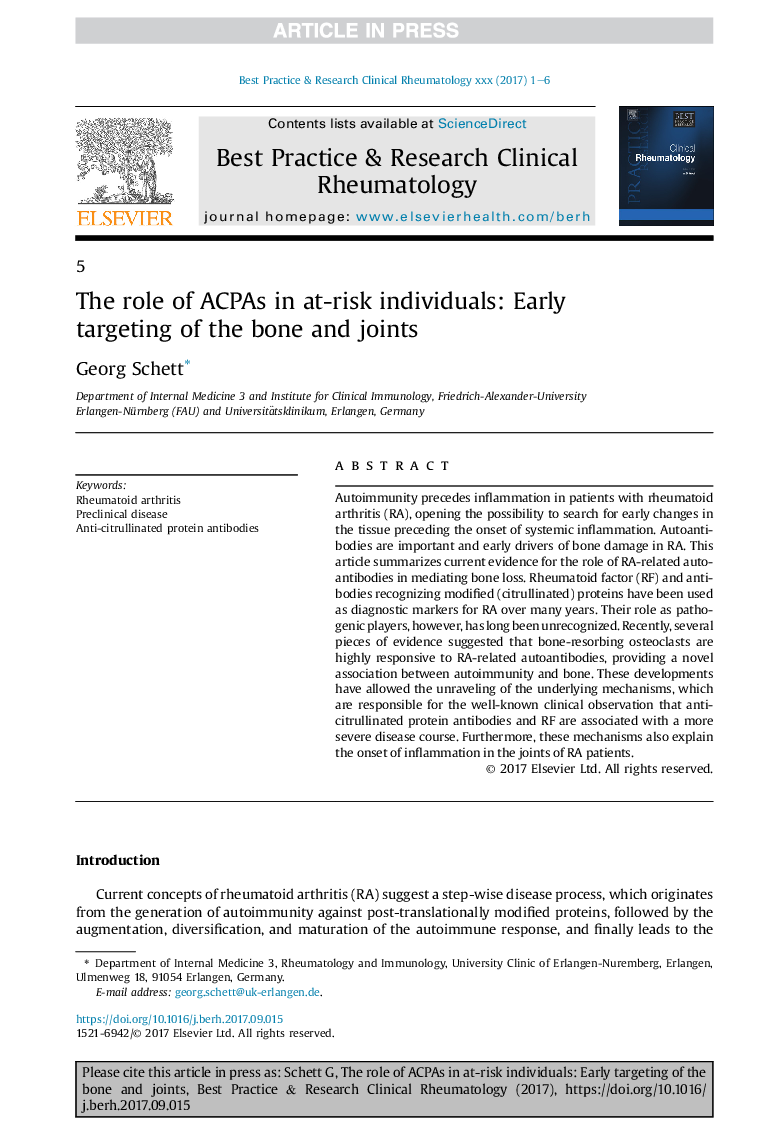| Article ID | Journal | Published Year | Pages | File Type |
|---|---|---|---|---|
| 8736616 | Best Practice & Research Clinical Rheumatology | 2017 | 6 Pages |
Abstract
Autoimmunity precedes inflammation in patients with rheumatoid arthritis (RA), opening the possibility to search for early changes in the tissue preceding the onset of systemic inflammation. Autoantibodies are important and early drivers of bone damage in RA. This article summarizes current evidence for the role of RA-related autoantibodies in mediating bone loss. Rheumatoid factor (RF) and antibodies recognizing modified (citrullinated) proteins have been used as diagnostic markers for RA over many years. Their role as pathogenic players, however, has long been unrecognized. Recently, several pieces of evidence suggested that bone-resorbing osteoclasts are highly responsive to RA-related autoantibodies, providing a novel association between autoimmunity and bone. These developments have allowed the unraveling of the underlying mechanisms, which are responsible for the well-known clinical observation that anti-citrullinated protein antibodies and RF are associated with a more severe disease course. Furthermore, these mechanisms also explain the onset of inflammation in the joints of RA patients.
Related Topics
Health Sciences
Medicine and Dentistry
Immunology, Allergology and Rheumatology
Authors
Georg Schett,
